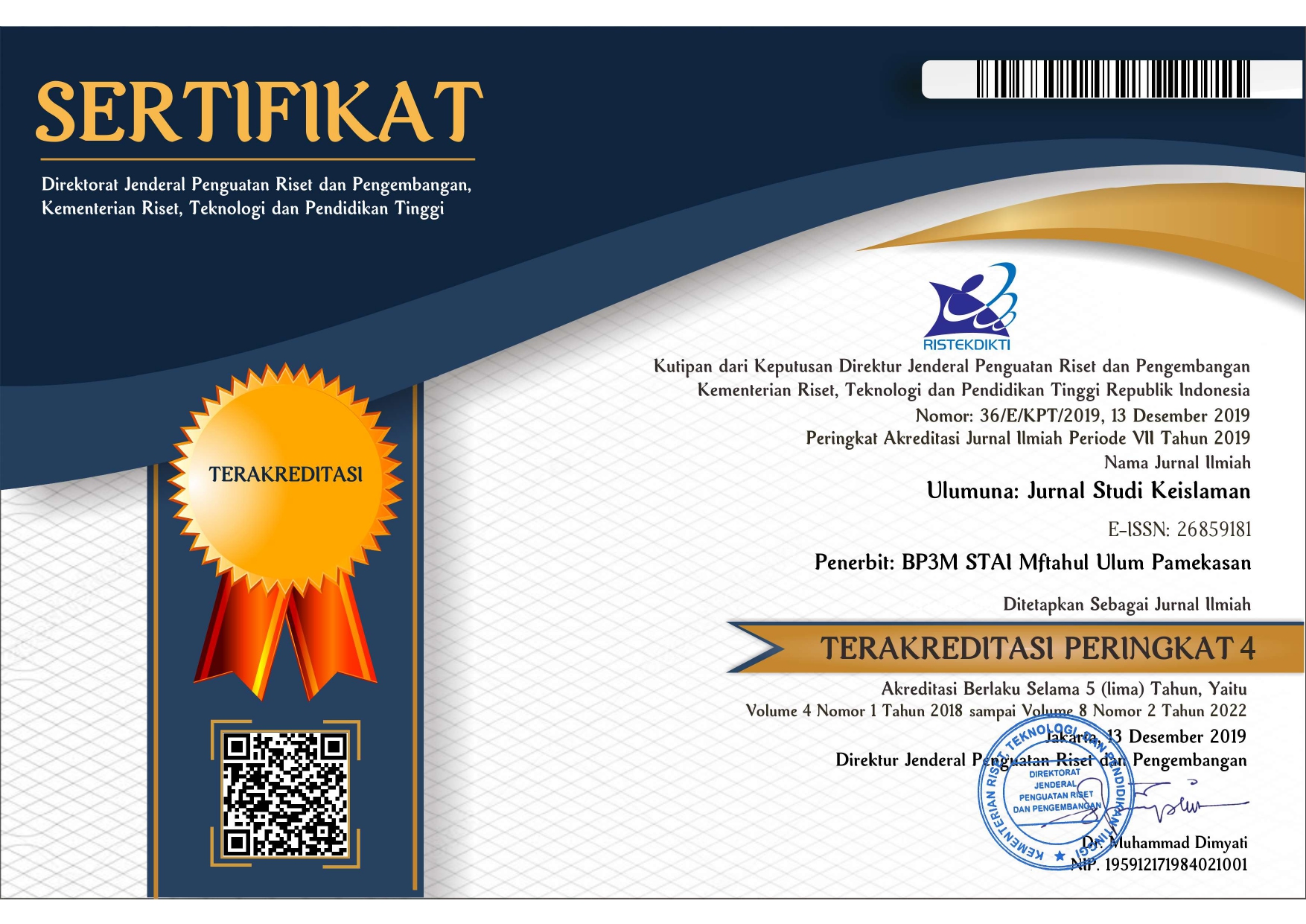Konstruksi Pemberdayaan Ekonomi Umat: Studi Gerakan Sosial di Madura
DOI:
https://doi.org/10.36420/ju.v10i1.8136Abstract
Madura Island remains one of the regions with the highest poverty rates in East Java Province. In this context, Islamic microfinance institutions (IMFIs) play a strategic role in empowering low-income communities. This study aims to explore the social movement strategies employed by three IMFIs affiliated with Nahdlatul Ulama—namely Koperasi An-Nisa’ IX Muslimat NU, BMT NU, and BMT Sidogiri—in promoting economic empowerment among rural communities in Madura. Adopting a qualitative approach through field research, the study collected data via in-depth interviews, participatory observations, and document analysis. The findings reveal that these institutions integrate Islamic values and Nahdliyyin cultural identity in four key strategies: religious organizational militancy, the pivotal role of pesantren, continuous mentoring models, and innovative service products. These empowerment movements have not only enhanced local economic participation but also reinforced culturally rooted social networks as a foundation for sustainable people-based economic development. Keywords: Islamic Microfinance, Economic Empowerment, Nahdlatul Ulama, Social Movement, MaduraDownloads
Published
2024-06-26
How to Cite
Shofa, S. A., & Muhtadi, R. (2024). Konstruksi Pemberdayaan Ekonomi Umat: Studi Gerakan Sosial di Madura. Ulumuna: Jurnal Studi Keislaman, 10(1), 159–187. https://doi.org/10.36420/ju.v10i1.8136
Issue
Section
Articles
License
Copyright (c) 2024 Sirojul Arifin Shofa, Ridan Muhtadi

This work is licensed under a Creative Commons Attribution-ShareAlike 4.0 International License.
Jurnal ini terbuka untuk umun dan bisa digunakan untuk kepentingan ilmiah lainnya






